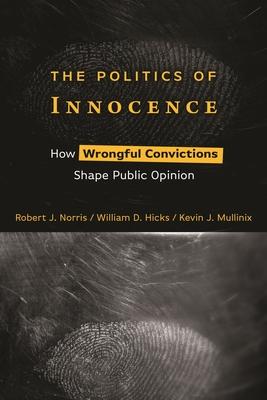The political dynamics that shape the Innocence Movement
Since 1989, more than 3000 people are known to have been exonerated after being wrongly convicted in the United States. Each one of these cases represents a gross miscarriage of justice; they are stories of lives upended by a criminal legal system gone awry. Yet, this number just scratches the surface and does not capture the full breadth of wrongful convictions, which may well number in the tens of thousands. The Politics of Innocence explores the political dynamics that have shaped the proliferation of innocence-related policies across the United States and the ways in which wrongful convictions affect public opinion about the criminal legal system. Although some have suggested that this issue transcends ideological divisions, the authors argue that public opinion and the policies that address wrongful convictions are a product of the political landscape. Using original data, the authors show how political ideology influences awareness of the issue, affects support for policy reform, and, in particular electoral contexts, influences state policy adoption. The Politics of Innocence is a moving and data-driven account of wrongful convictions.
Book
The Politics of Innocence: How Wrongful Convictions Shape Public Opinion
(Write a Review)
$31.67
The political dynamics that shape the Innocence Movement
Since 1989, more than 3000 people are known to have been exonerated after being wrongly convicted in the United States. Each one of these cases represents a gross miscarriage of justice; they are stories of lives upended by a criminal legal system gone awry. Yet, this number just scratches the surface and does not capture the full breadth of wrongful convictions, which may well number in the tens of thousands. The Politics of Innocence explores the political dynamics that have shaped the proliferation of innocence-related policies across the United States and the ways in which wrongful convictions affect public opinion about the criminal legal system. Although some have suggested that this issue transcends ideological divisions, the authors argue that public opinion and the policies that address wrongful convictions are a product of the political landscape. Using original data, the authors show how political ideology influences awareness of the issue, affects support for policy reform, and, in particular electoral contexts, influences state policy adoption. The Politics of Innocence is a moving and data-driven account of wrongful convictions.Paperback
$31.67